Focal length: ~50mm, selective focus lens
Mount: Pentax
Min focus distance: 0.50m
Aperture: F 2.0 - F 22 via insertable disks
Length (from flange): ~ 70mm [+ 26mm for the adapter]
Diameter: ~ 80mm
Weight: 170gr.
The
Lensbaby Control Freak lens lets you control the shift of the lens
precisely to the mm with its 3 screw controls. It has removable inserts
of the "swap" system. It's delivered with a "double glass" lens.
Some pictures:
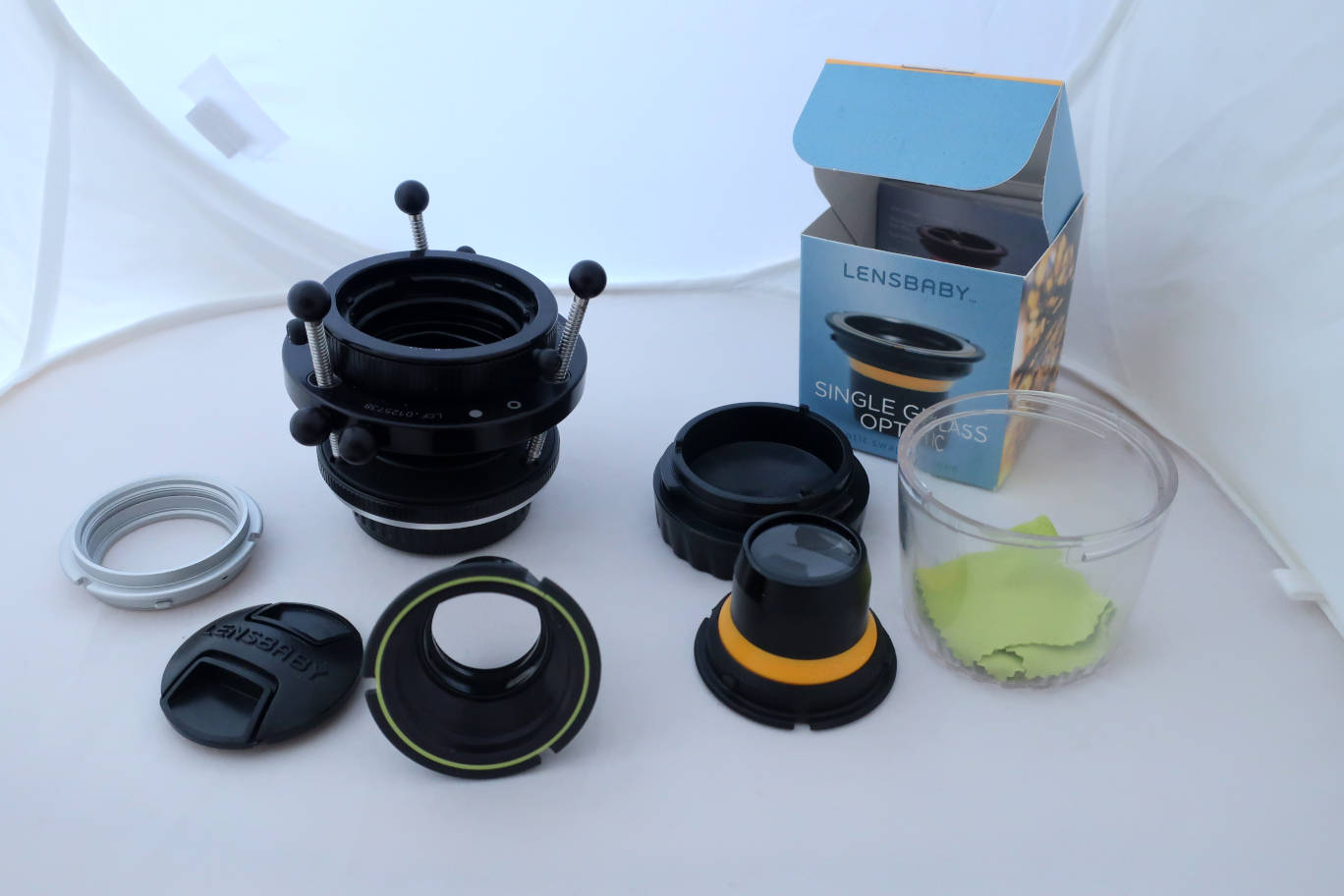
A
Lensbaby Control Freak lens with its Double Glass lens and its cap. To
the left: accessory adapter. To the right: "single glass" lens, its box
and its container. The base of the container is the so-called swap
tool. You will need it to swap the inserts. the 3 humps of the base
engage into the gaps on the inserts. A small amount of a turn locks or
engages the insert.
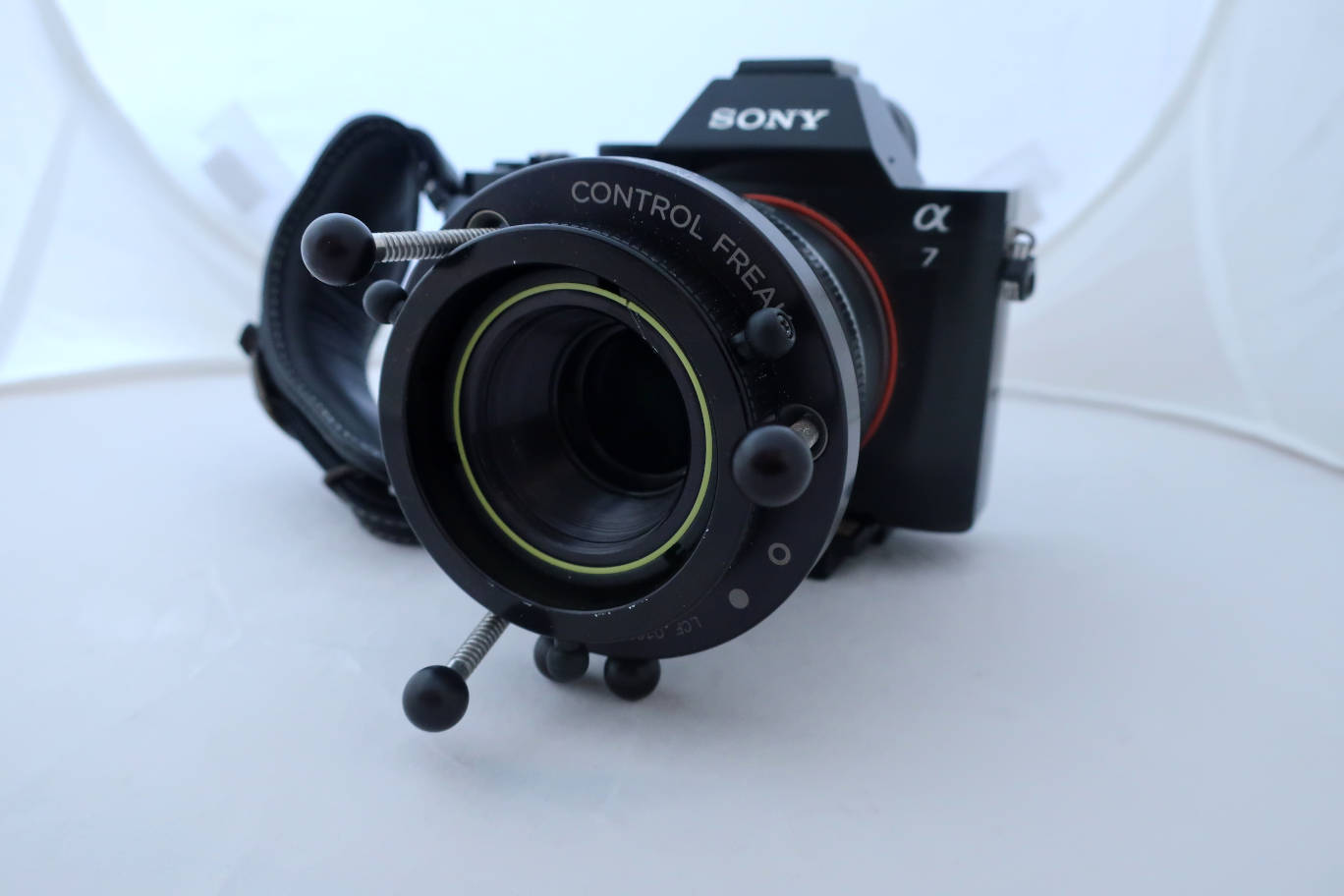
A7 and the lens.
The lens itself sits deep inside. The 3 screw controls stick out of the
front lens mount. The 2 balls under the front lens mount have to be
squeezed to release the screw control. There is a lock button on the
outside of the front lens mount (not visible in the photo), so you can sqeeze and
bend the lens to the disired point, lock it with the button and then
fine-tune the lens with the screw controls. The outmost front of the
front lens mount can be turned for fine focus via the 3 smaller balls
of the fine focussing ring. Note the indication circles on the front
lens mount whether the insert is locked or not. It's locked in the
picture. The gap of the insert is opposite le "locked" sign.
Some general remarks about Lensbabies. The first Lensbaby was a simple plastic lens in
a simple PVC tube which has to be squeezed to focus and/or bent to move
the sharp area. The lenses are
set to be sharp only at the center, the rest is blurred, simulating
perfectly a "bokeh" effect. The sharp spot (called sweet spot) can be
shifted sideways. They cover full
format. The lenses are soft to blurry at full
aperture. Closed down they becoming sharper, but retain blurred edges.
The idea was a great success. Now there are plenty of different systems
and a wide choice of accessories and even swappable lenses.
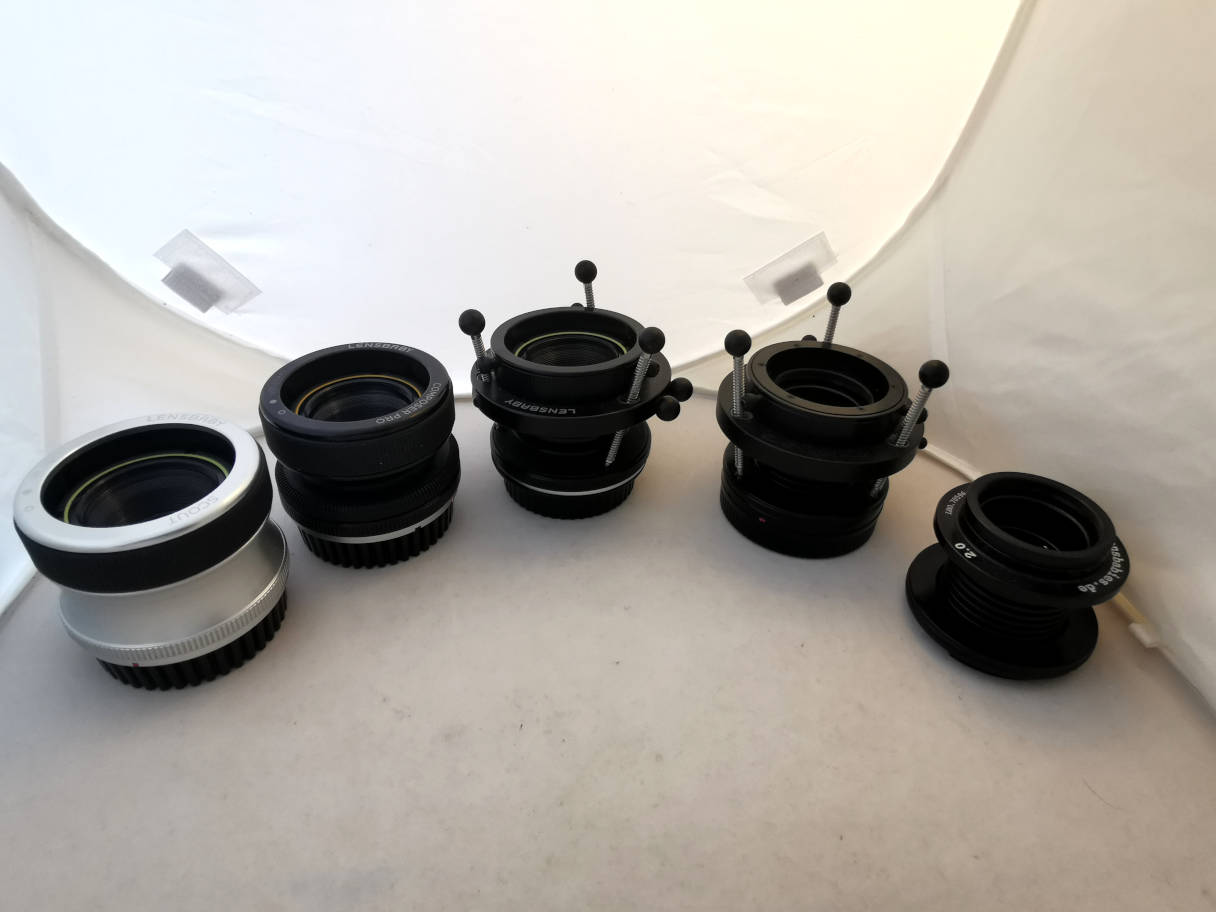
From right to left: Lensbaby 2.0, close to the first Lensbaby, fixed lens, but glass, not plastic. 3G,
similar to 2.0, but bending and sqeezing can be done precisely and
stays so until you push the release button. It has also a focus thread
for precise focussing. Control freak, a 3G with swappable lenses, presented here. Composer Pro, has a ball-joint type tube to move the sweet spot, swappable lenses and a focus ring. Scout, rigid tube, no bending, swappable inserts, focus ring, often sold with a fisheye lens.
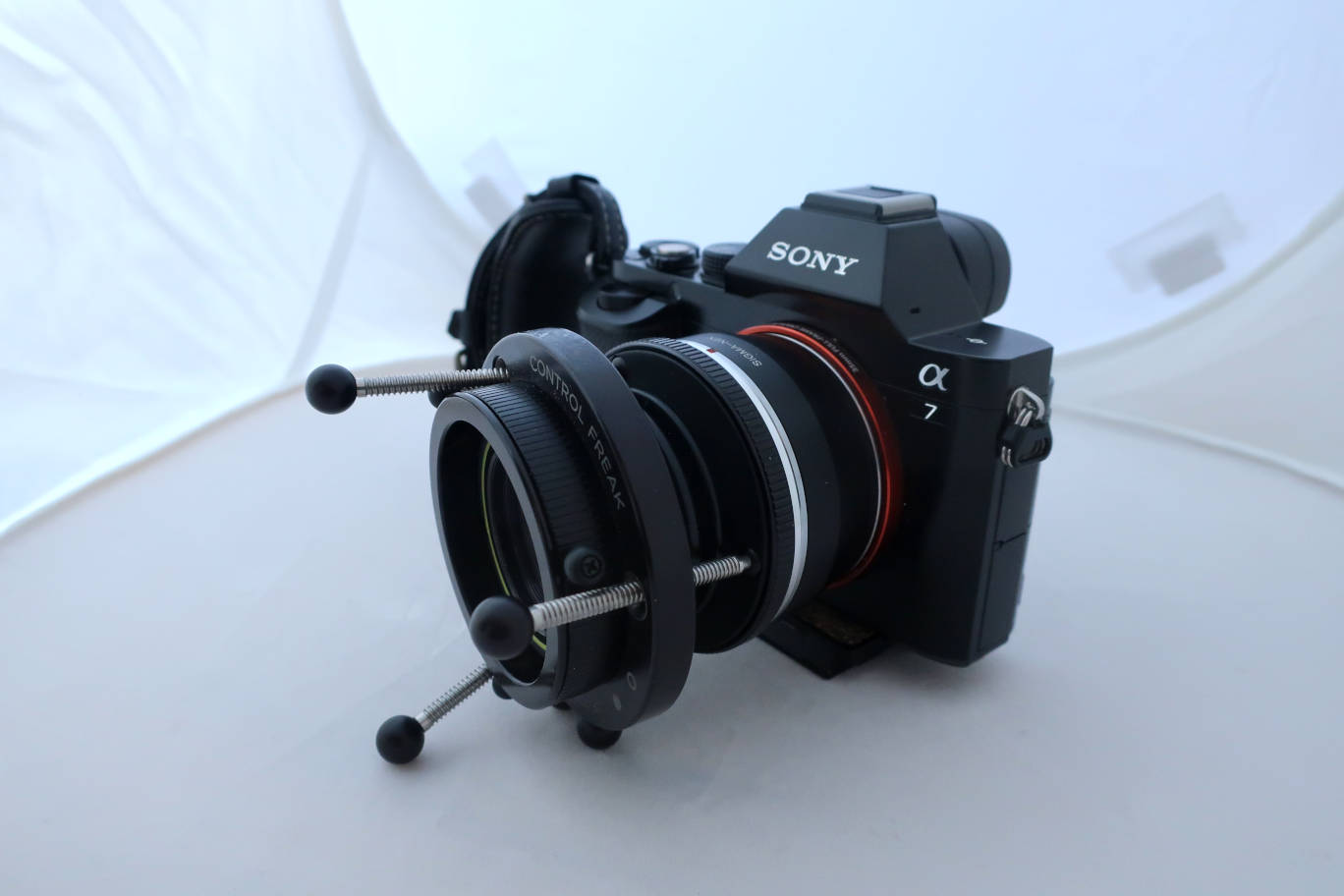
Lens unit bent sideways.
The aperture disks have to be put in front of the lens and are held by
the magnets.
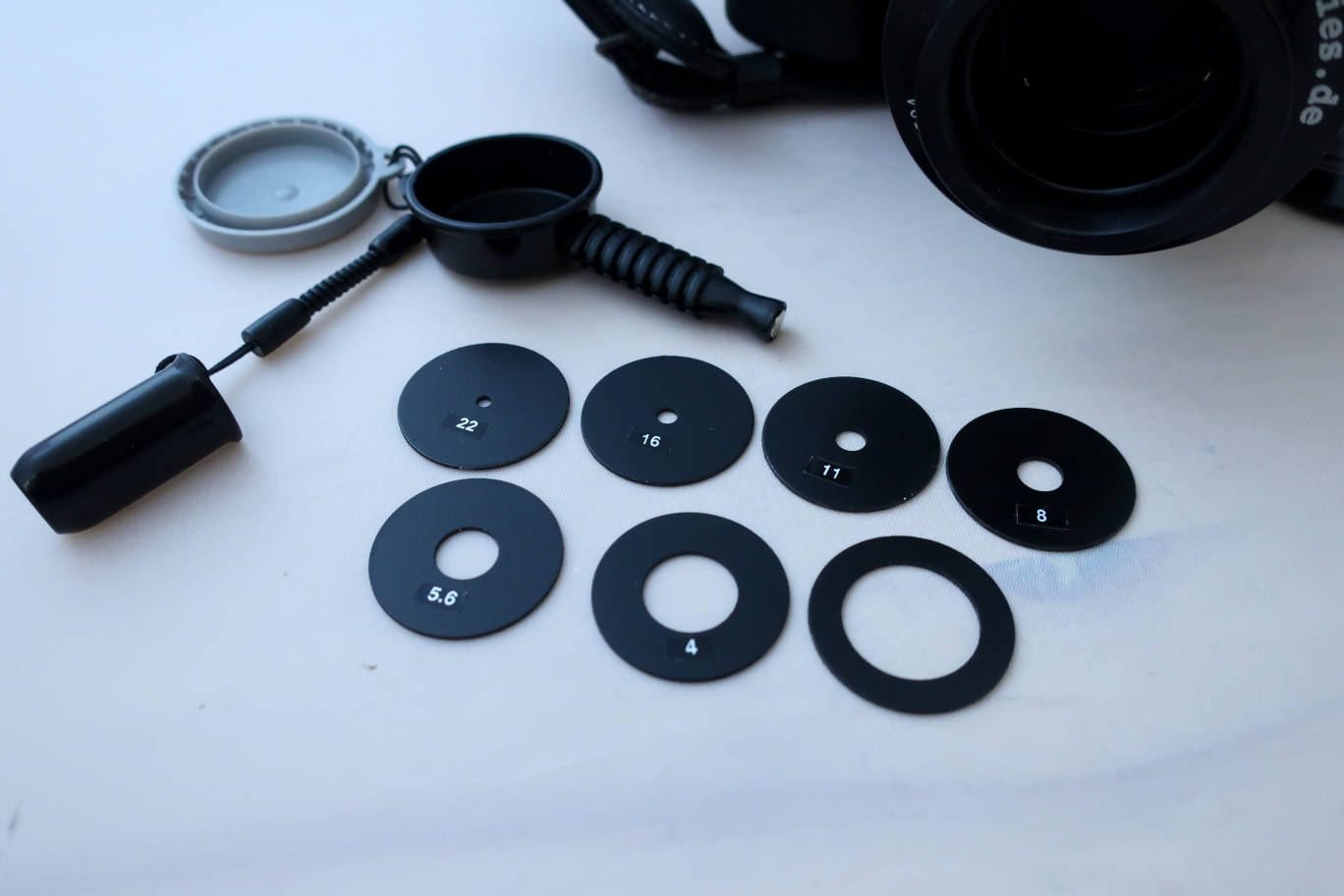
This is a full 7-aperture set with a very handy magnetic tool to change
the disks.
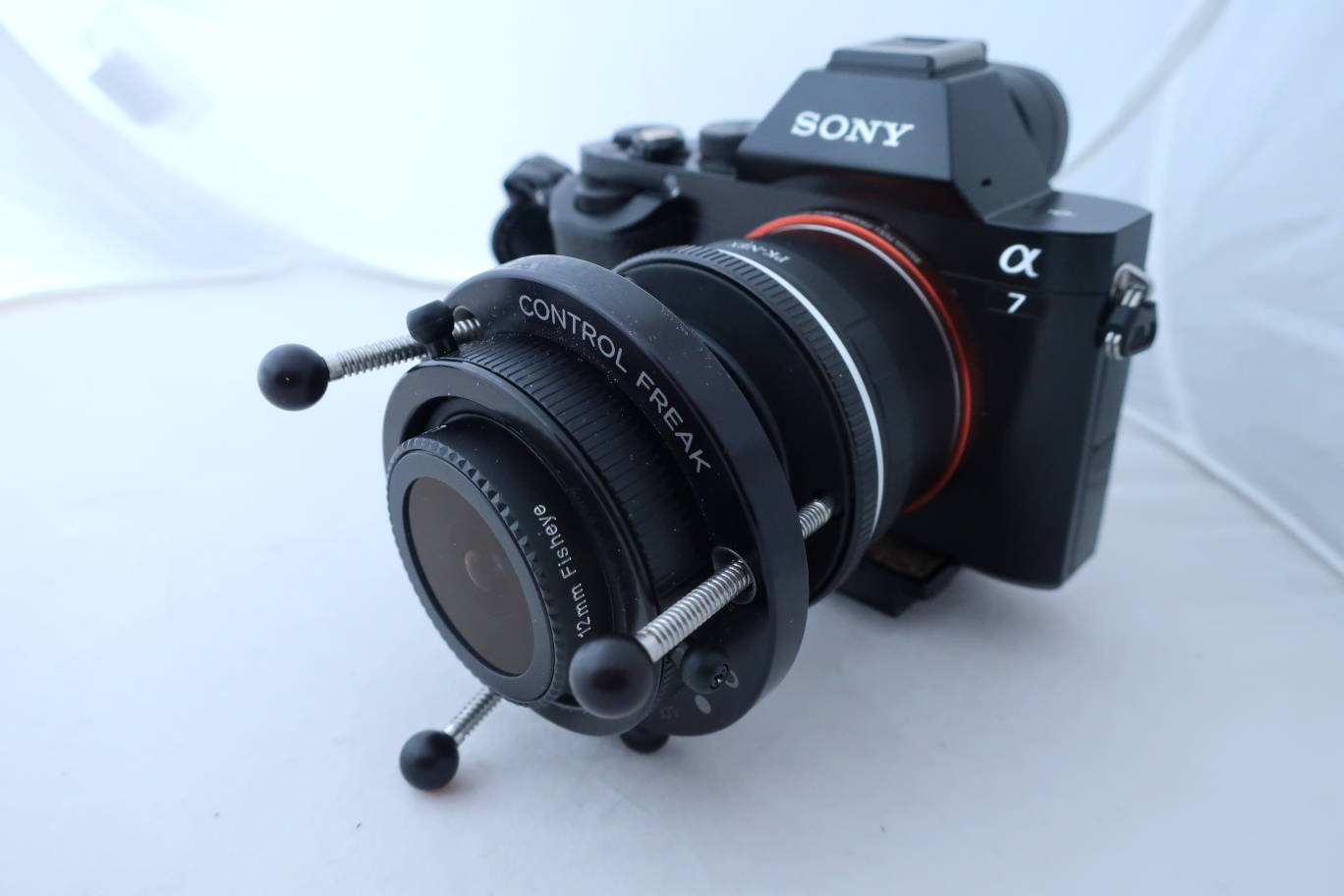
There is a 12mm fisheye insert available.
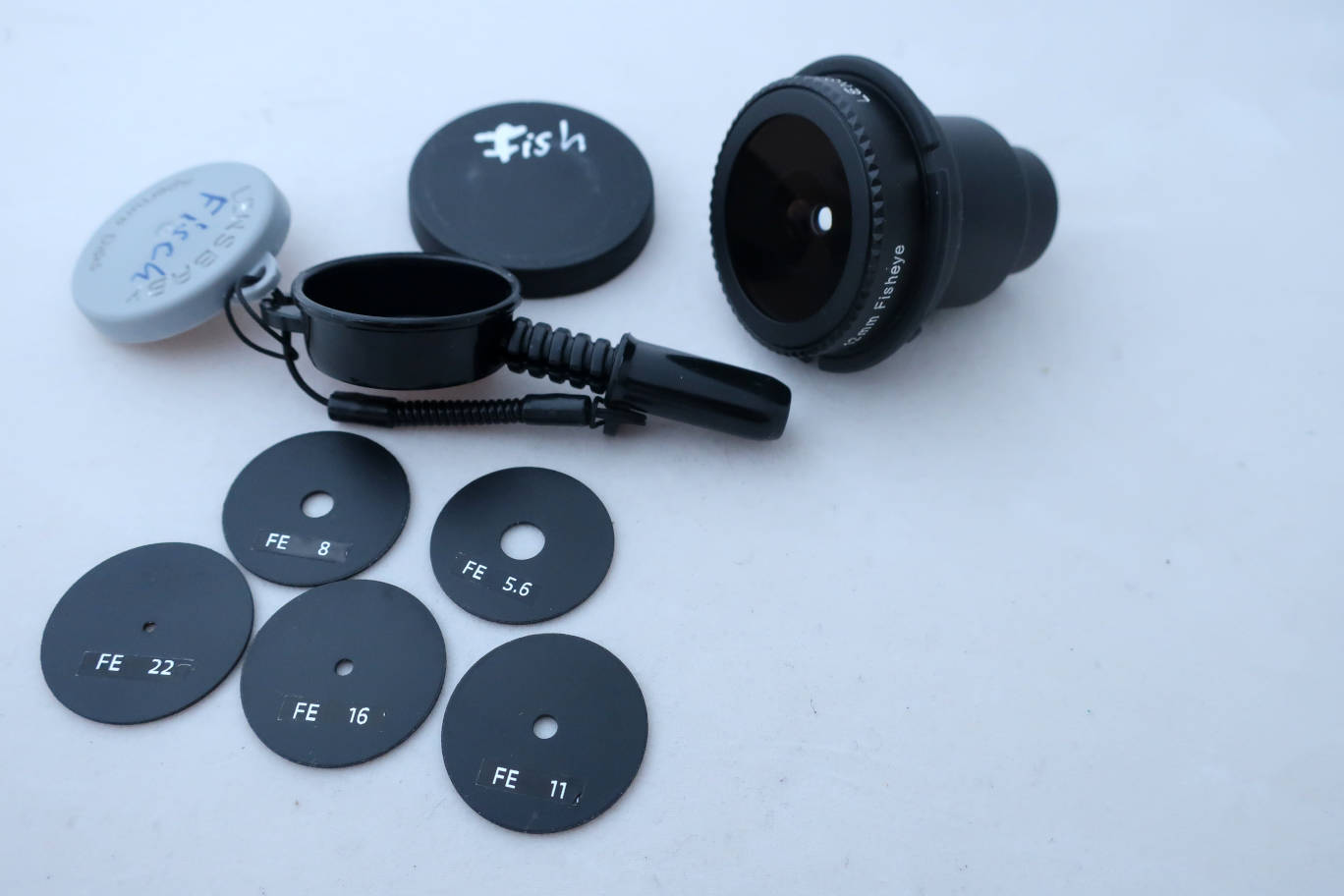
It comes with a rubber cap and its own set of aperture disks. They are
marked, the holes are smaller than those in the standard set.
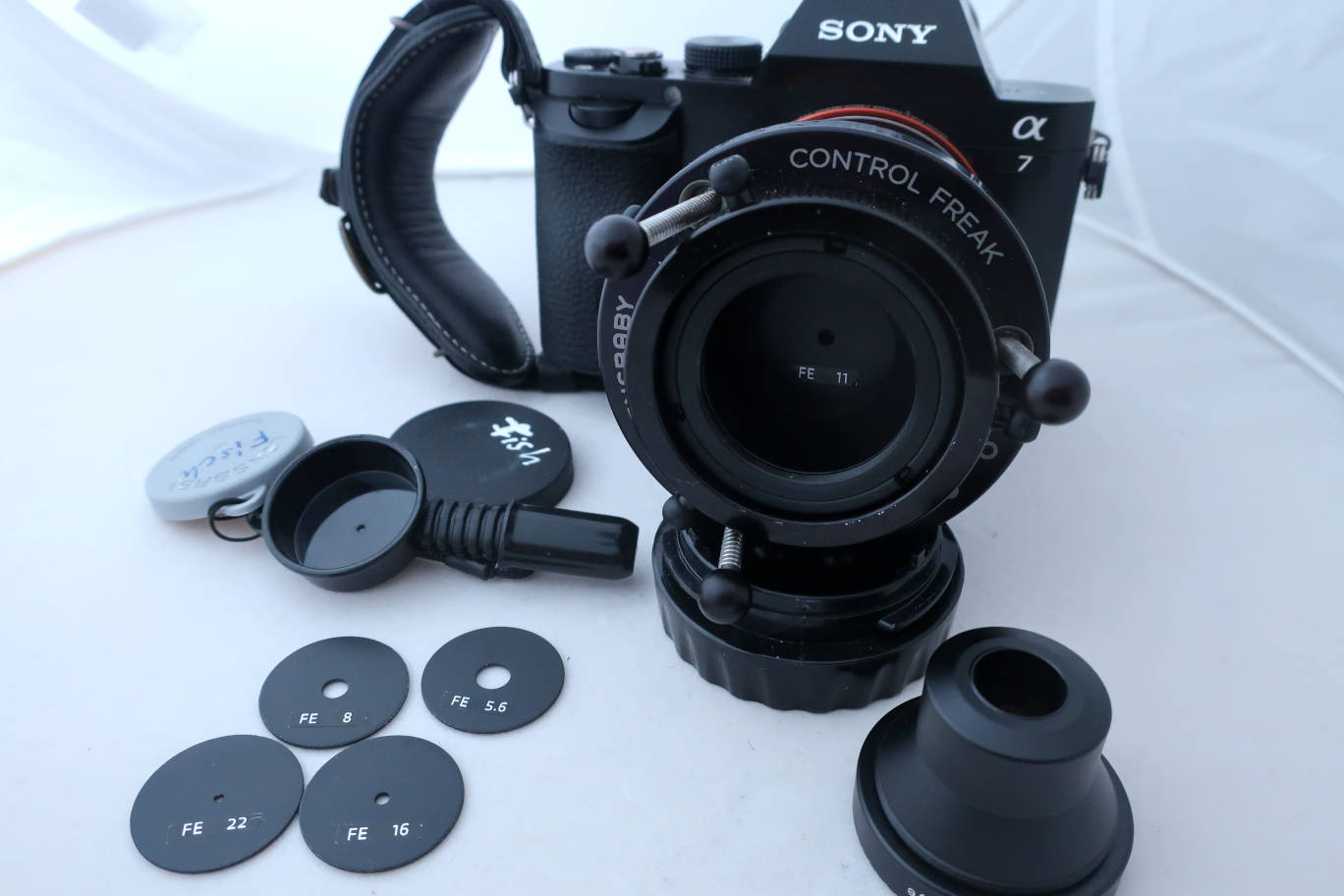
You have to unscrew the the front lens unit to place the aperture
disks. BTW: the remaining lens of the insert is usable on its own. It
seems to be a standard lens with no blur. Sample pictures from this
one will be on the Lensbaby Scout page.
Sample pictures: You may click
on the sample image (except closest focus) for full resolution. The
full resolution image opens in a new window, so you can keep it open
for comparison. I tried to focus is on the satelite dish near the
big solar panel in the center of the photo.
Let us start with an aperture series of the "double glass" lens.
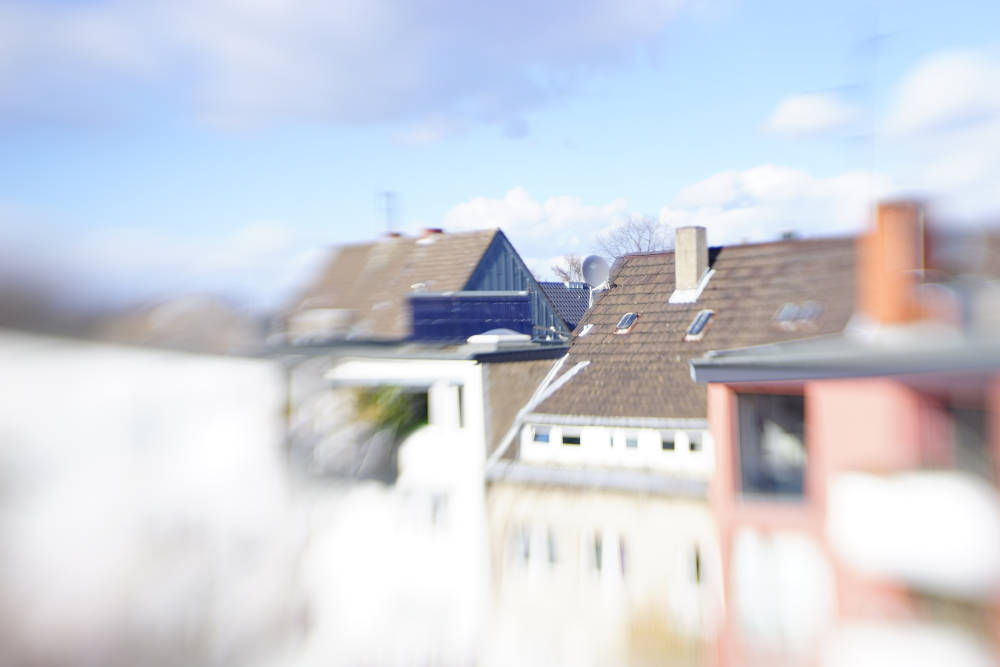
F2, just a litle bit of sharpness. The blurred part is very (too) bright.
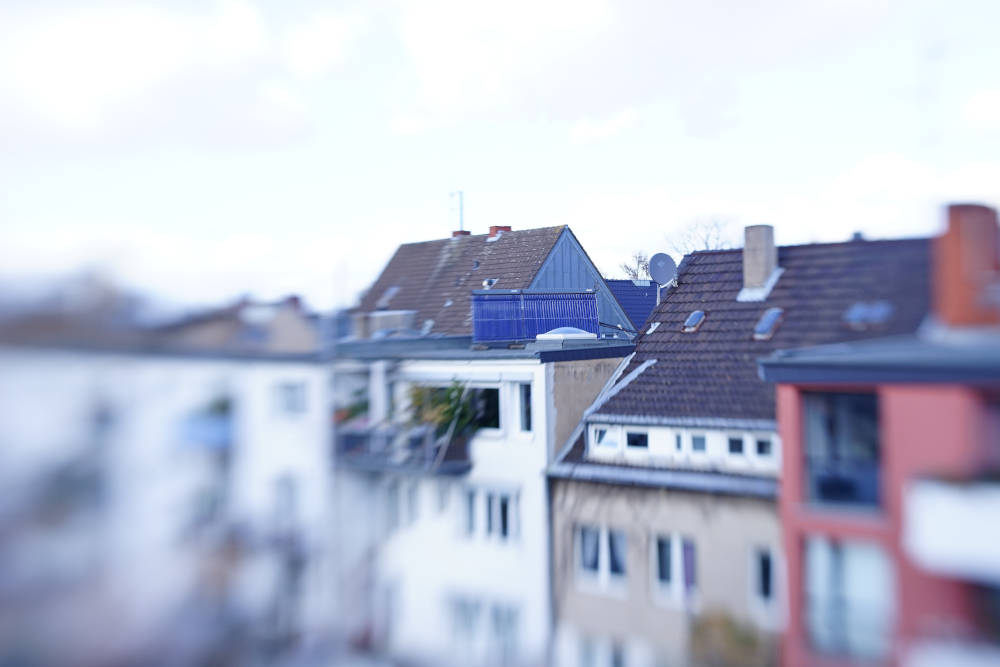
F4, a bit more focussed area in the middle, the rest is blurred.
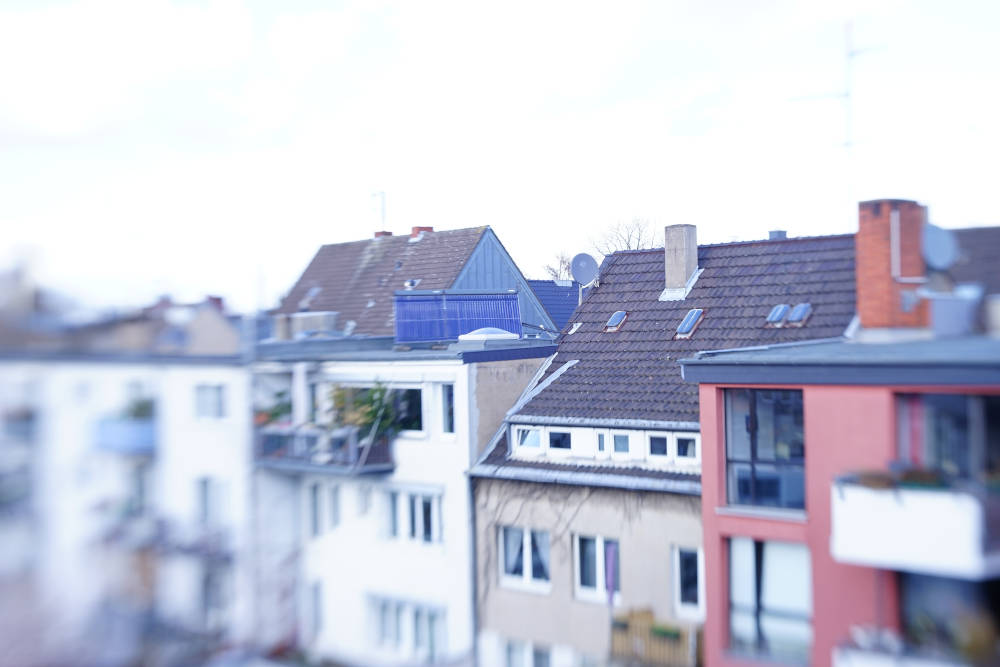
F8, focussed area gets a bit bigger...
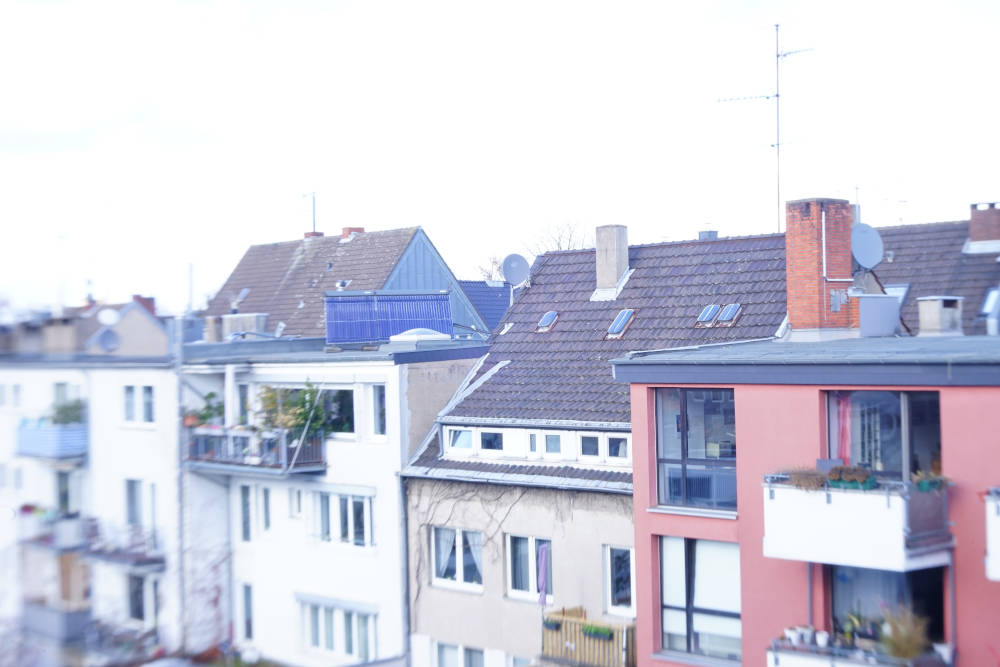
F16.
Sharp in the center, blurred edges, the desired effect of this lens. It
was a sunny day indeed, but there is too much overcast. The lens is
coated, but there is not enough contrast. Bear in mind that this is
only a double lens, a simple Tessar has 4 lenses, a Sonnar 6 or 7.
Obviously the lens cannot deal with very bright light.
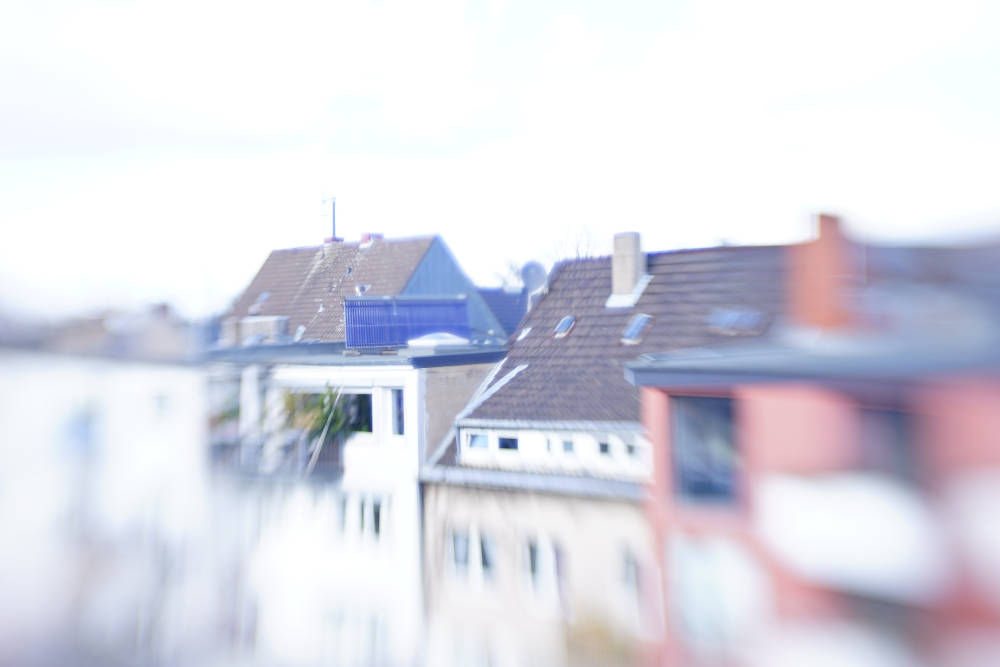
F2 again, lens bent to the left.
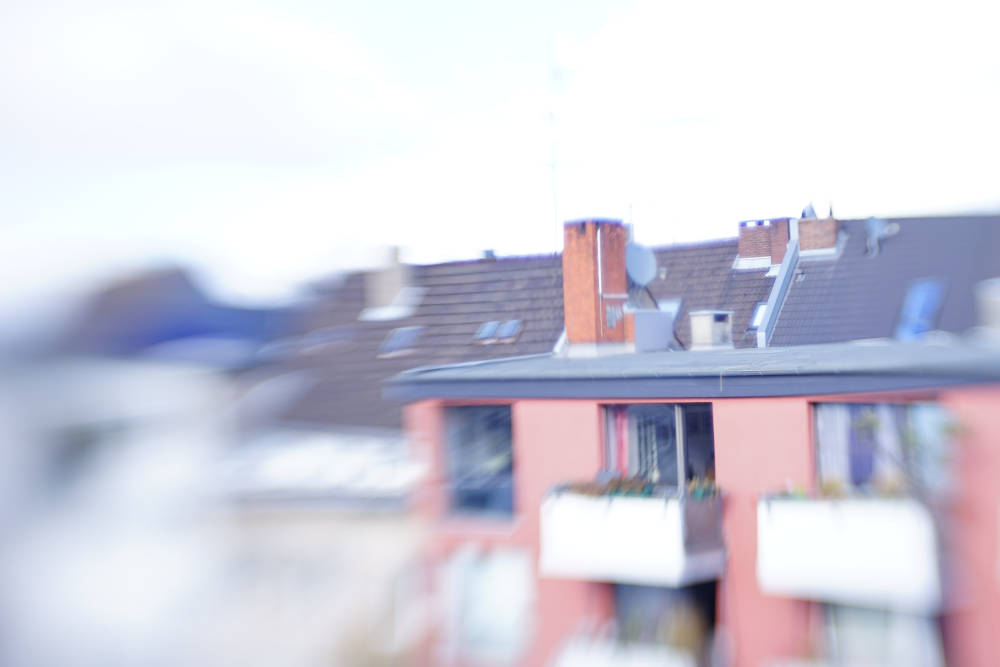
F2, bent to the right.
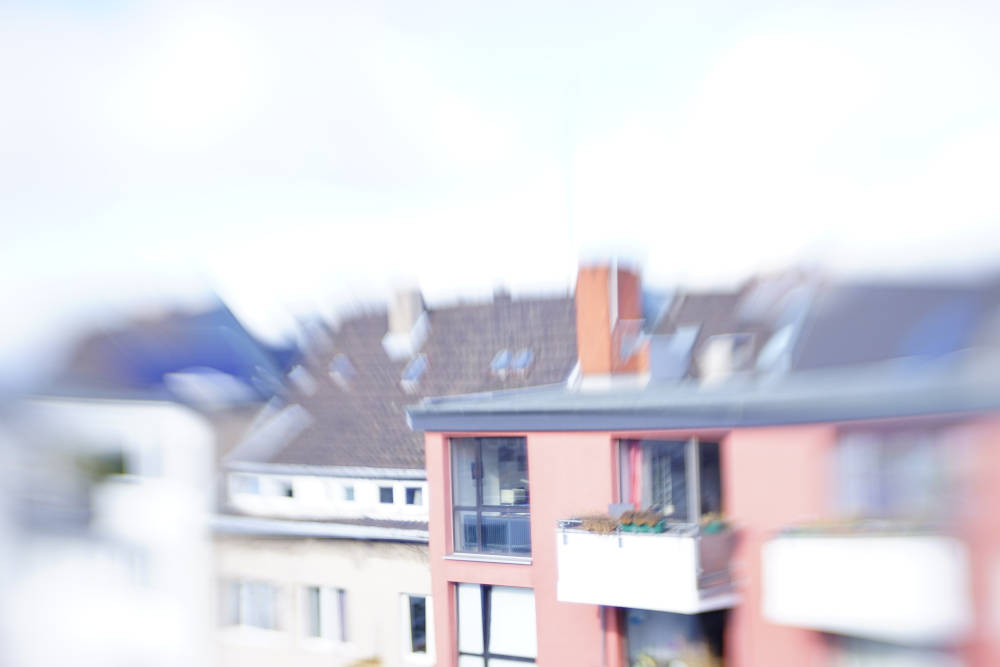
F2, lens bent down.

F2, lens bent down and camera directed downwards. Contrast gets better as there is a lesser part of the bright sky.
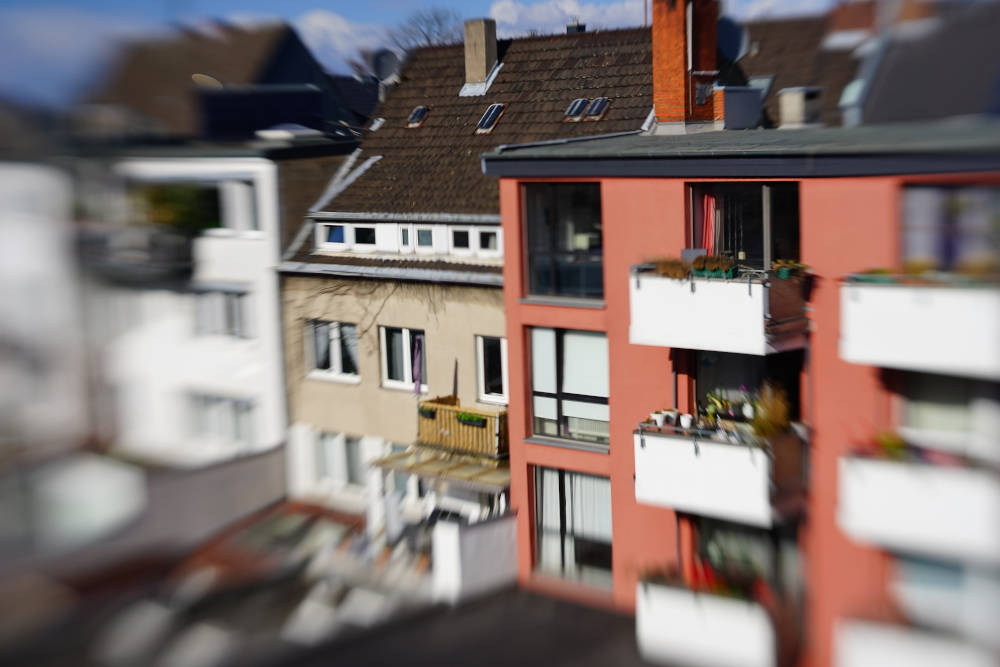
F4, still further down. Nearly no bright sky in the picture. Contrast is fine.
Close focus, no full resolution picture:
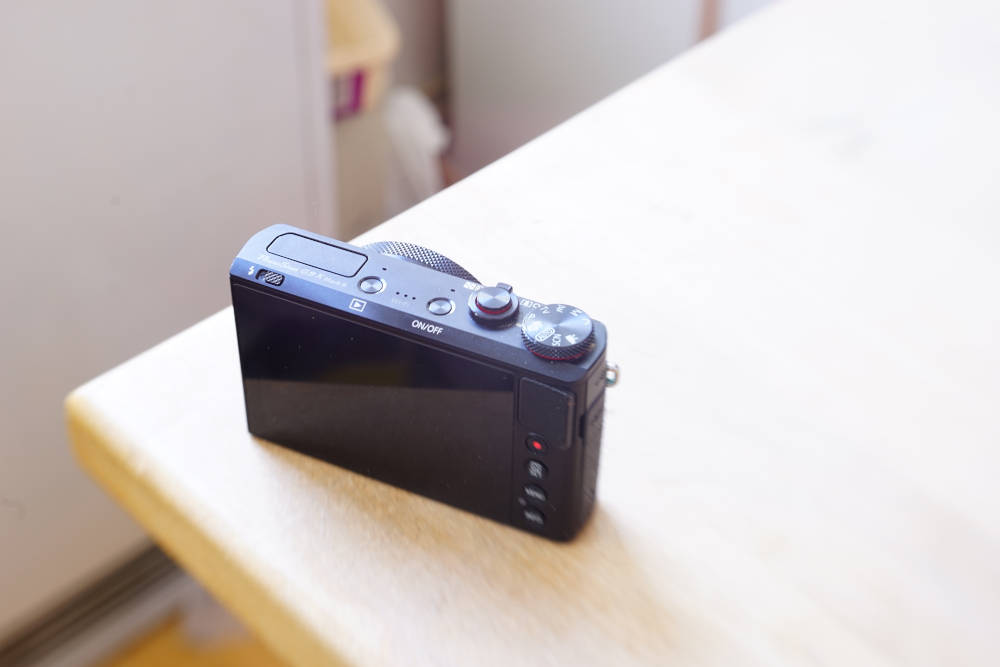
Closest focus of the lens is about 50cm from
outermost
edge of the lens, F 8. Focus on
the program wheel of the camera.
The "double
glass" lens has an overcast problem. Compared to the lens of the
Lensbaby 2.0 it's much worse. Now let's see the results of the "single
glass" lens:
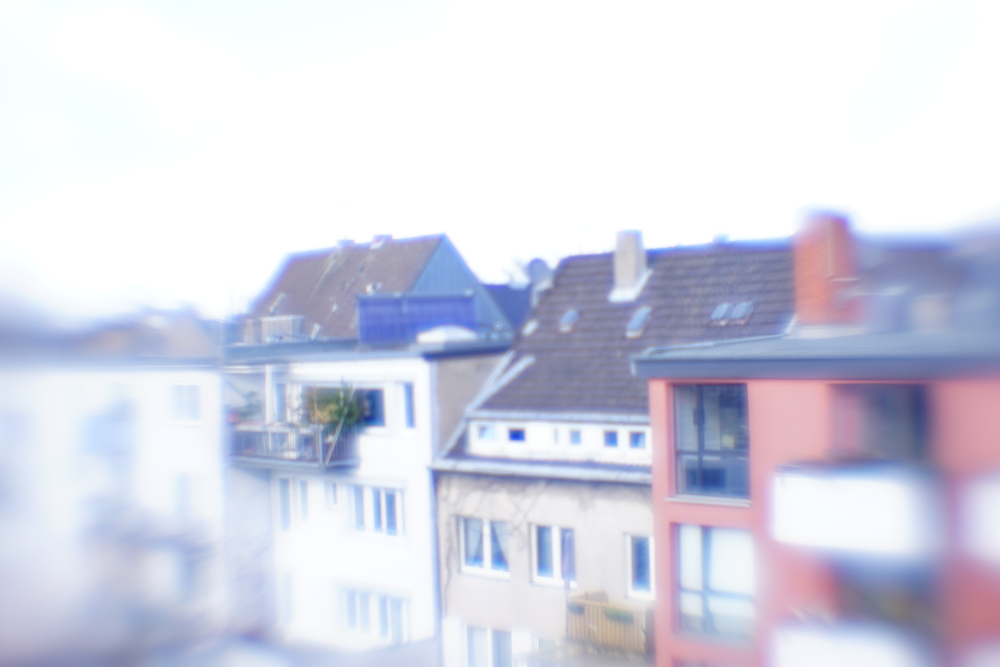
F2, nothing really sharp at all. Same type of overcast as the "double glass" lens.
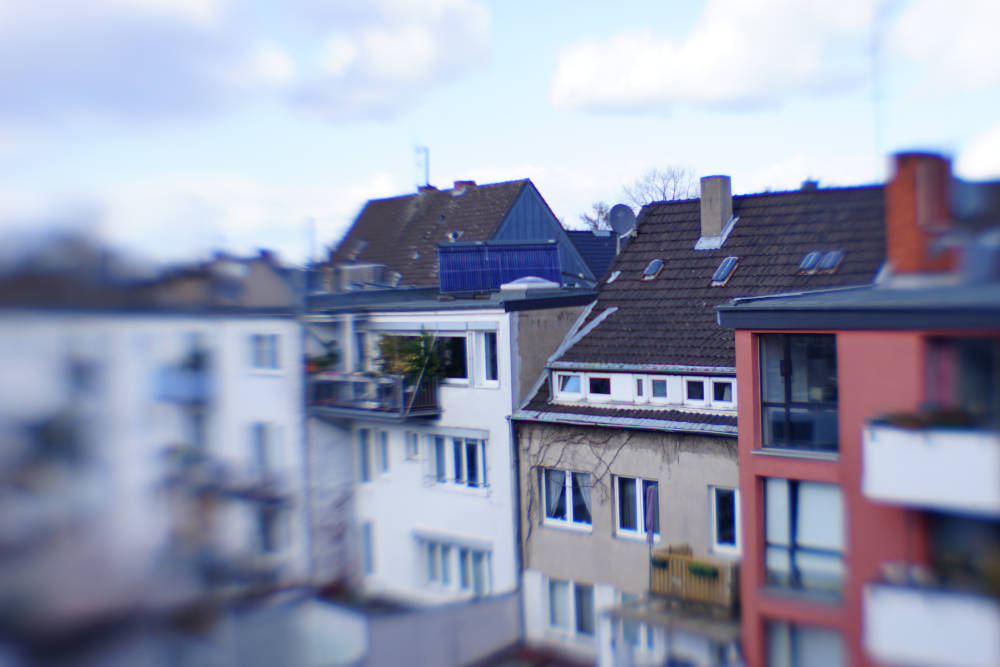
F4. There was a cloud passing at the very moment. So it really seems to be the sun which causes the problem.
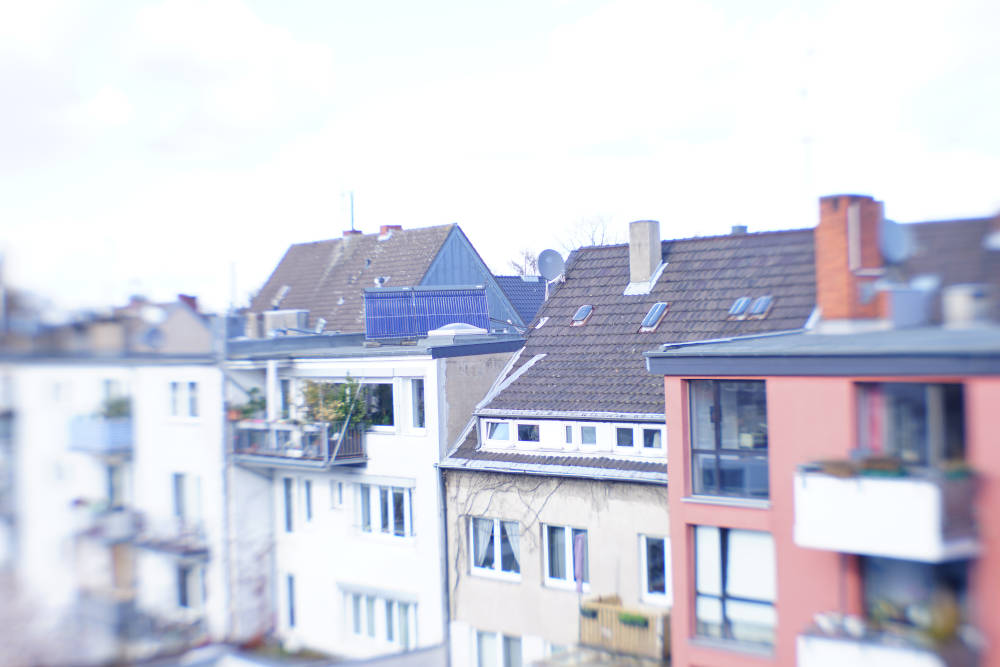
F8. Some more sharpness in the center.
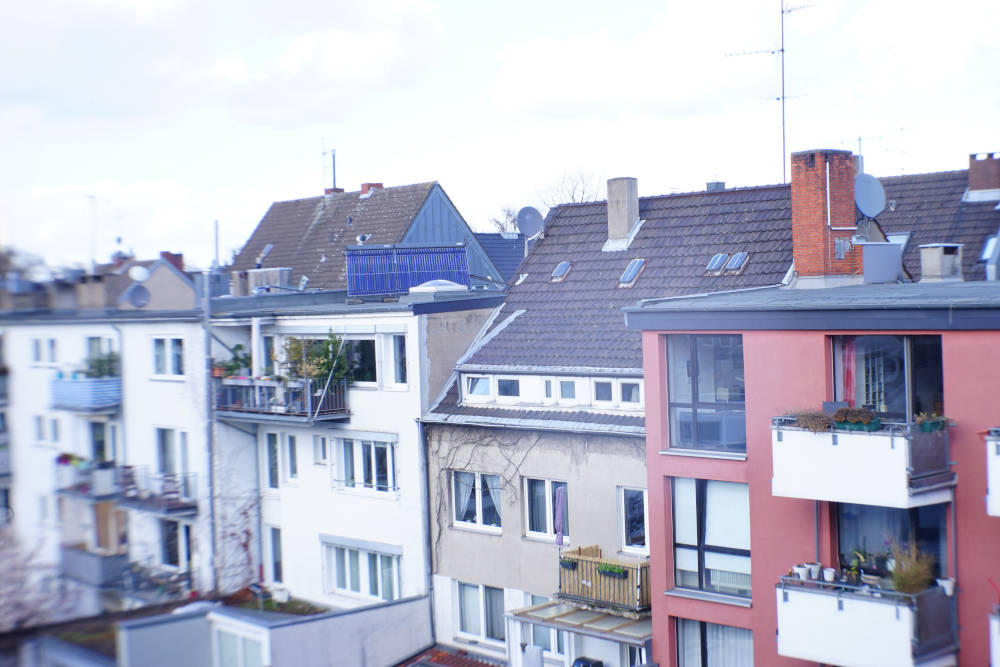
F16.
Still overcast and a second optical problem, a large bright spot in the
center, it looks like stray light in a lens tube of an old non-coated
lens.
Close facus. No
full resolution picture.
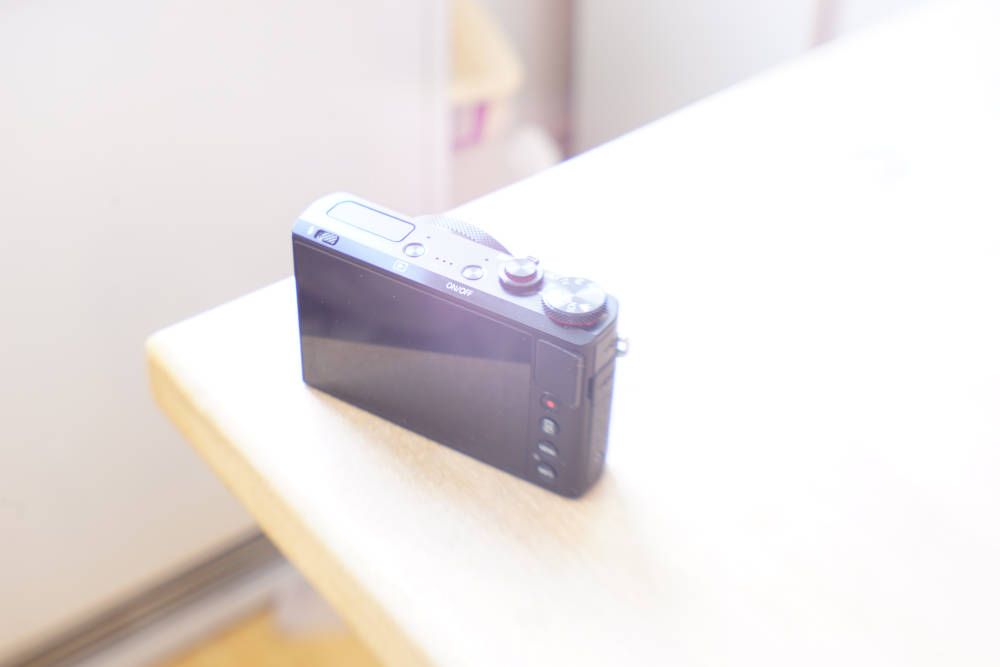
Closest focus of the lens is about 50cm from
outermost
edge of the lens, F 8. Focus on
the program wheel of the camera. Total overcast, although this is an inside photo.
The "single
glass" lens has a severe overcast problem, it's even worse than the "double glass" lens. Compared to the lens of the
Lensbaby 2.0 it's not good at all.
This
is a fun photo lens, called selective focus lens.
It's a PVC tube which can be squeezed and bent to focus, this one it
can be fixed at any angle. So it is much more precise than other
lensbabies, its name "control freak" is well chosen. The lenses are
inserts and can be changed, there is quite a choice, including a
pinhole.The lenses are
set to be sharp only at the center, the rest is blurred, simulating
perfectly a "bokeh" effect. The sharp spot (called sweet spot) can be
shifted in any direction. It covers full
format. The lens is soft to blurry at full
aperture. Closed down it's becoming sharper, but retains blurred edges.
The glass lens inserts are a deception.
And
a general warning: squeezing and releasing the lens aspires dust into
your camera which can spoil your sensor. Zoom lenses do the same, but
in general they are well protected against dust passing inside via an
elaborate seal system. The lensbabies are simple constructions without
much dust sealing. So squeeze with care and clean your sensor in case
of.
The lens is nevertheless sturdy. It is easy to use after some learning.
It's fun to experiment
with its possibilities. I found mine for very
cheap, so it was worth a try. In no way would I have payed the original
price, my second hand Mamiya RB67 150mm soft focus lens with all disks was
cheaper. Buying further inserts is still very expensive. But if you come across a set for a reasonable price, try it
out. It's fun.
